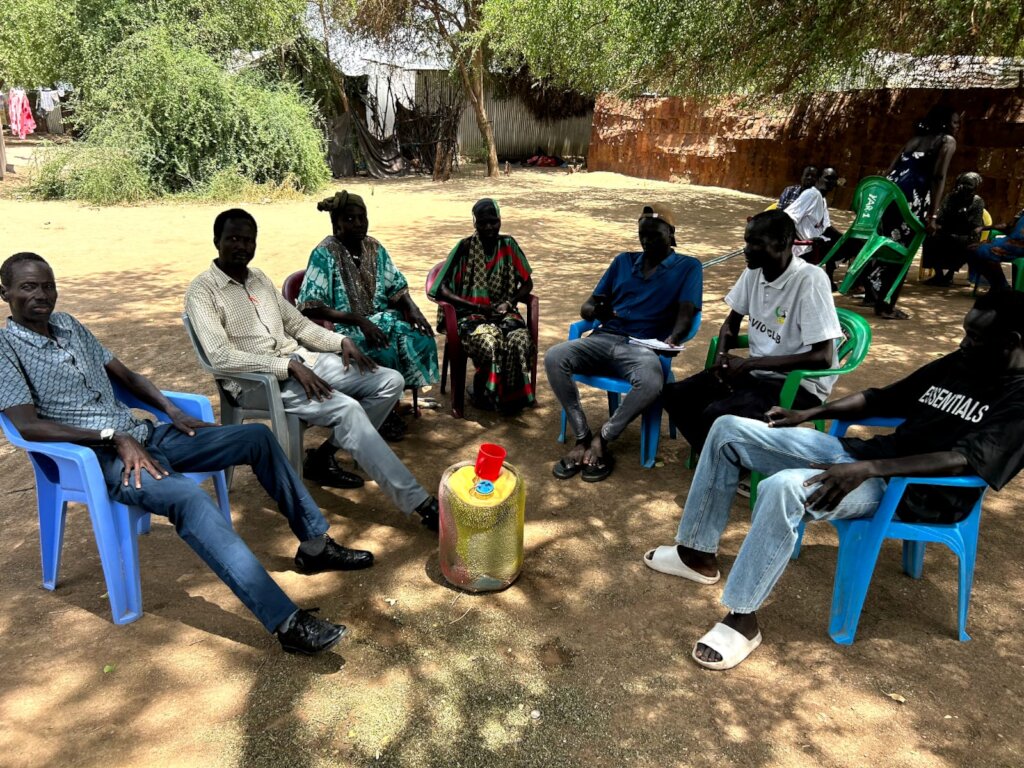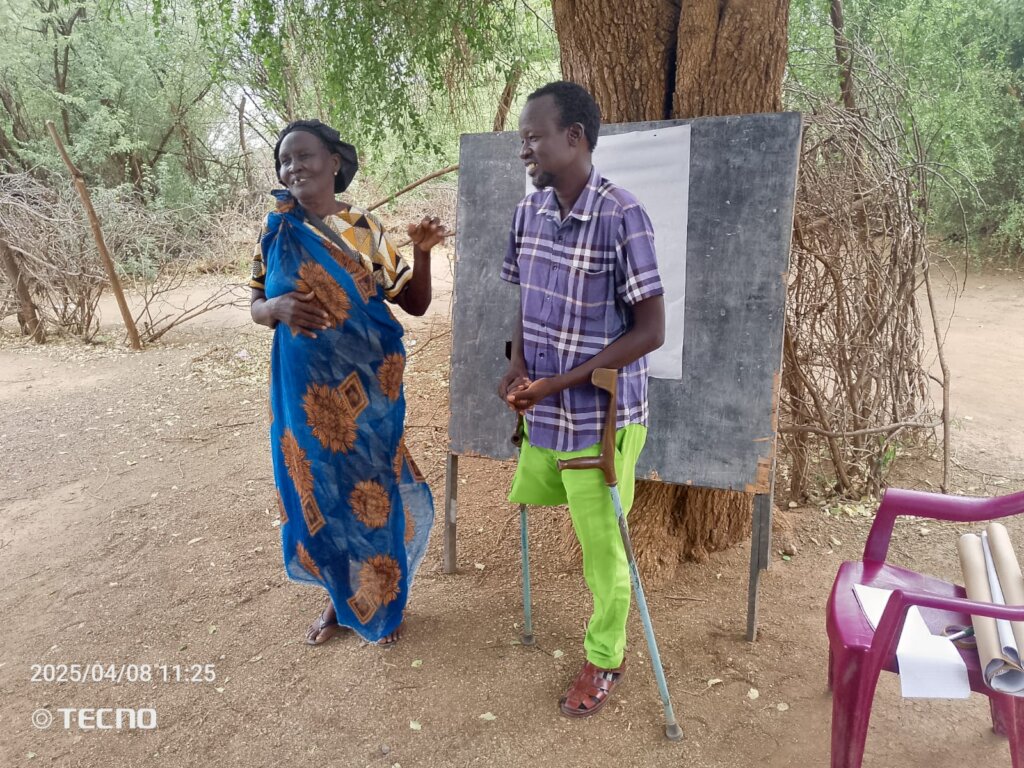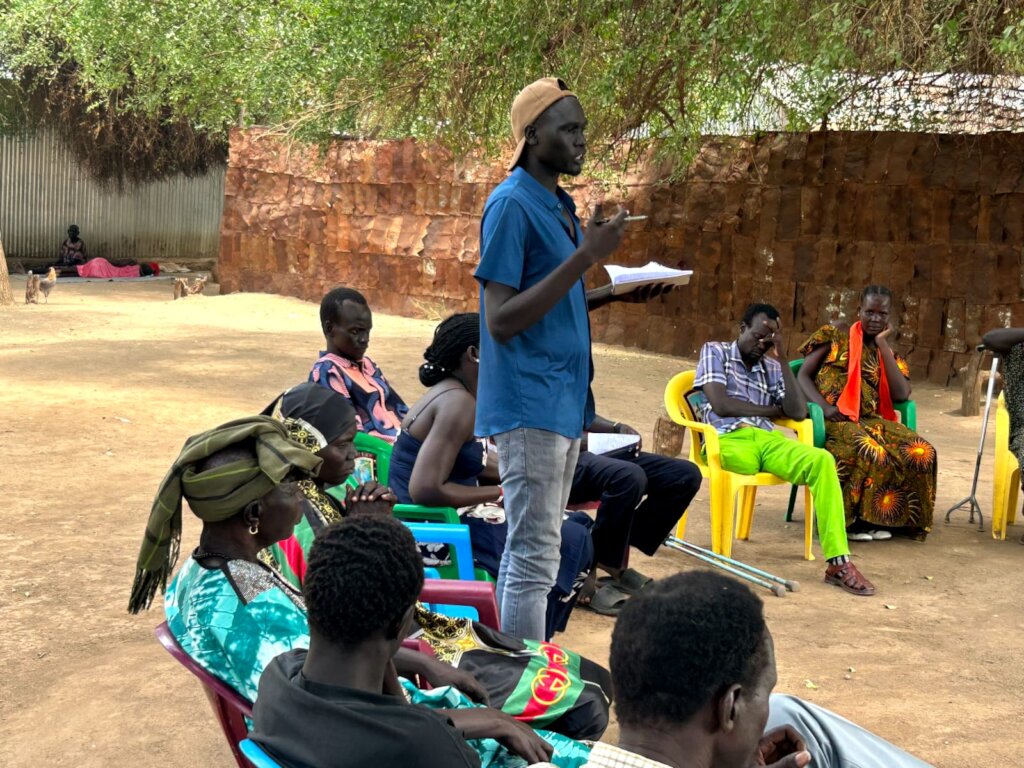By Peter Serete | Program Coordinator
In response to the worsening humanitarian crisis in Kakuma Refugee Camp and Kalobeyei Settlement, our organization conducted six Listening Sessions aimed at supporting refugees who are increasingly vulnerable due to food insecurity, lack of healthcare access, and disrupted education. The sessions targeted 150 participants drawn from previous AVP (Alternatives to Violence Project) and HROC (Healing and Rebuilding Our Communities) trainings. 67 women (30 and above years), 55 men (30 and above year) 45 youth (18-30 years) 2 People with disability. A total of 168 refugees participated in the Listening sessions.
These sessions were implemented amid growing desperation in the camp following the withdrawal of several aid agencies, exacerbated by the ripple effects of American sanctions affecting African countries, including interruptions in USAID funding. The situation is especially dire for women and youth who have lost not only material support but also safe spaces for advocacy and healing.
Listening Sessions, a tool developed in Kenya following the 2007 post-election violence, provided a structured environment for participants to share their pain, reflect on personal and communal challenges, and begin the journey toward healing. Each session included guided empathy exercises, storytelling, and referrals for deeper trauma care and conflict resolution.
THE CHALLENGES WE FACE IN THE KAKUMA REFUGEE CAMP AFTER THE WITHDRAW OF USAID CURRENTLY;
1. Shortage of water and lack of good hygiene led to a high risk of cholera outbreak
2. Insufficient food from the UNHCR leads to a high rate of crimes in the refugee camp
3. Fears and panic attacks on the Refugees by Kenyan police and the host community
4. High risk of death due to poor healthcare and lack of good medicines in the hospital
5. The trauma cases increase because people are more likely traumatized by the current situation in Kakuma
6. High cases of stealing, rape, and robberies due to life struggles.
7. Displacement of Refugees from region to region due to the conflict and flood.
8. Lack of shelter and clothes
9. Children drop out of school due to lack of school fees and hunger.
10. High cases of attempted suicide in the camp because of inadequate funding.
.
Testimonies from the listening sessions
“When we were receiving food, we could at least eat twice a day. Now with just rice and sorghum and no cooking oil, I sometimes go two days without food. I came here for protection, but even my body is no longer safe,” shared Elizabeth, a 34-year-old mother of three from South Sudan. “But this session reminded me I am not alone.”
“I saw pictures of two young men killed during the protest on my daughter’s phone,” said Peter, a HROC facilitator from South Sudan. “We were just standing in solidarity with the women. Since then, I have had nightmares and feared leaving my shelter. This session helped me speak for the first time. I cried in front of strangers and they didn’t judge me.”
Fatuma, a Congolese refugee in Kalobeyei settlement scheme, added, “Back home, we are taught never to speak about emotions. Here, I saw women and men listening to each other, and it made me believe that healing is possible. This space means a lot to me.”
These testimonies are a powerful reminder that listening is not passive—it is active healing. Participants were not only heard but also connected to follow-up services such as counselling, trauma healing groups, and peacebuilding programs under AVP and HROC.
Conclusion and Way Forward
Participants resolutions and desire
1. The return of USAID to the UN AGENCY to support Refugees
2. Provision of water and adequate foods
3. Availability of medicine in the hospitals
4. Funding of schools for children with disability and vulnerability.
5. Availability of more training for Trauma Healing Workshops
6. Provision of shelter and school uniforms to children who drop out of school
7. Extension of HROC Workshop to South Sudan to help people who have been experiencing trauma for a long time
8. The support of the HROC to vulnerable facilitators, facilitators with disabilities, and facilitators who are willing to attend further education like college and university
The Listening Sessions have proven to be an essential intervention during this critical time. They offer more than temporary relief; they lay the foundation for long-term resilience and community restoration. Participants emerged with a renewed sense of dignity, hope, and solidarity
By Peter Serete | Program Coordinator
By Peter Serete | Program Coordinator
Project reports on GlobalGiving are posted directly to globalgiving.org by Project Leaders as they are completed, generally every 3-4 months. To protect the integrity of these documents, GlobalGiving does not alter them; therefore you may find some language or formatting issues.
If you donate to this project or have donated to this project, you can receive an email when this project posts a report. You can also subscribe for reports without donating.
Support this important cause by creating a personalized fundraising page.
Start a Fundraiser

